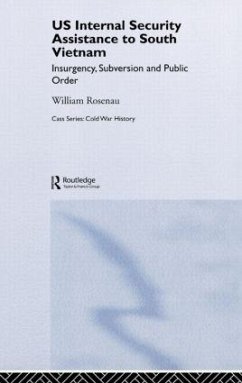
European Security Policy and Strategic Culture

PAYBACK Punkte
30 °P sammeln!
With the Lisbon Treaty in place and the European Union increasingly involved in international crisis management and stabilization operations in places near and far, this volume revisits the trajectory of a European strategic culture. Specifically, it studies the usefulness of its application in a variety of circumstances, including the EU's operations in Africa and the Balkans as well as joint operations with NATO and the United Nations. The contributors find that strategic culture is a useful tool to explain and understand the EU's civilian and military operations, not in the sense of a 'caus...
With the Lisbon Treaty in place and the European Union increasingly involved in international crisis management and stabilization operations in places near and far, this volume revisits the trajectory of a European strategic culture. Specifically, it studies the usefulness of its application in a variety of circumstances, including the EU's operations in Africa and the Balkans as well as joint operations with NATO and the United Nations. The contributors find that strategic culture is a useful tool to explain and understand the EU's civilian and military operations, not in the sense of a 'cause', but as a European normative framework of preferences and constraints. Accordingly, classical notions of strategic culture in the field of international security must be adapted to highlight the specific character of Europe's strategic culture, especially by taking the interaction with the United Nations and NATO into account. Though at variance over the extent to which security and defence missions have demonstrated or promoted a shared strategic culture in Europe, the authors reveal a growing sense that a cohesive strategic culture is critical in the EU's ambition of being a global actor. Should Europe fail to nurture a shared strategic culture, its actions will be based much more on flexibility than on cohesion. This book was published as a special issue of Contemporary Security Policy.














